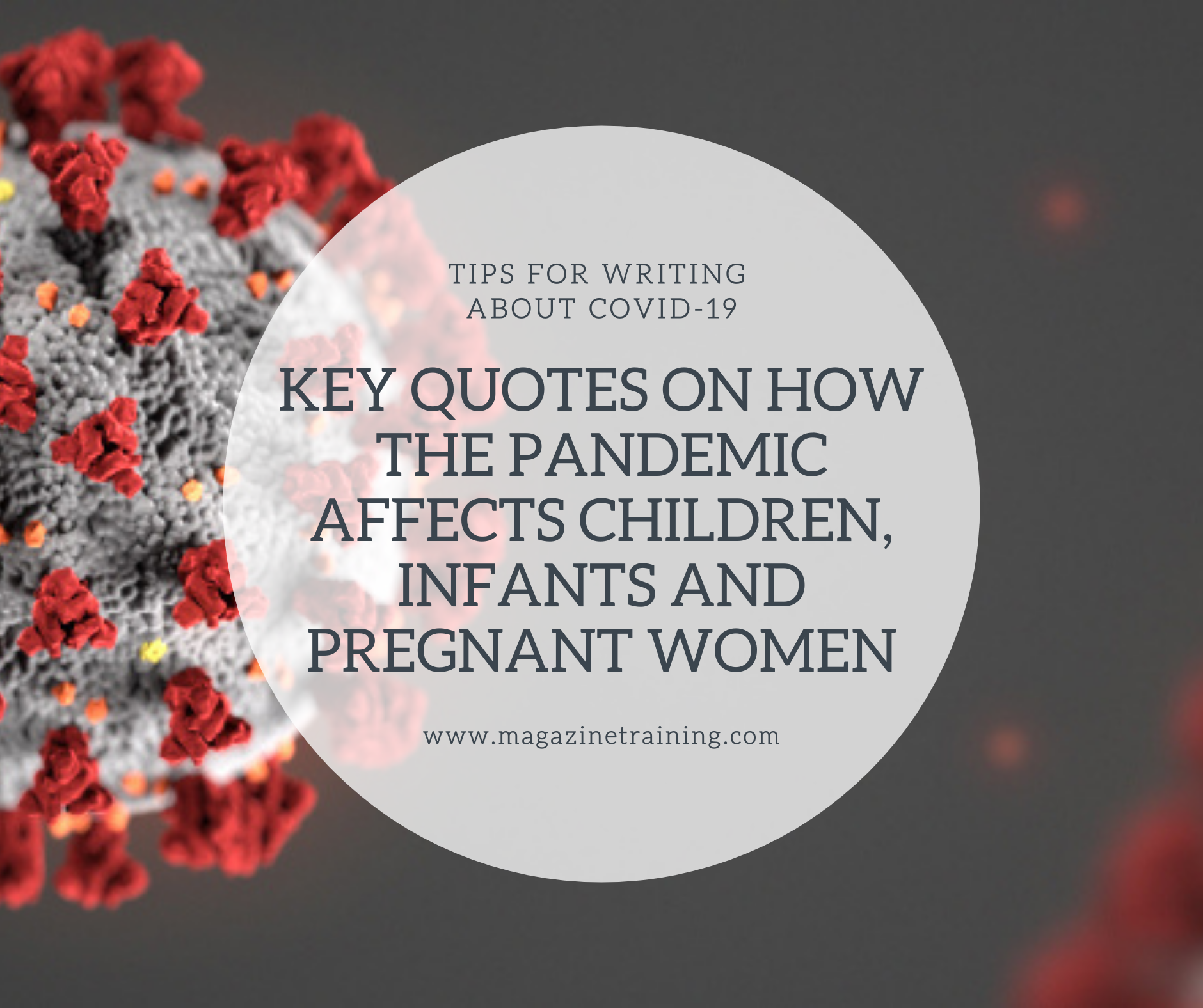
We talked with Dr. Karen Kotloff, head of the Division of Infectious Disease and Tropical Pediatrics at the University of Maryland, as part of the Global Health Crisis Reporting Forum — a project with our parent organization, the International Center for Journalists (ICFJ). She also is the Associate Director of Clinical Studies at the university’s Center for Vaccine Development and Global Health and has worked extensively in Africa. The online talk was moderated by Joyce Barnathan, president of ICFJ.
This article is part of our online coverage of reporting on COVID-19. To see more resources, click here.
Dr. Kotloff said that while children infected with COVID-19 are faring better than adults in countries that have seen widespread outbreaks, it’s too soon to say whether the same will be true in countries where poverty, malnutrition and diseases like HIV and tuberculosis are more widespread.
“We know from other viruses that there are regional differences and that … the negative effects on the immune system of things like HIV and malnutrition cause (children) to have a more severe illness,” she said. “We don’t know whether that’s the case with COVID. … We really don’t know what will happen in places like Africa and Asia where malnutrition is a big problem.”
Here are highlights from the discussion:
Why do children have fewer complications from COVID-19 than adults do?
“To be honest, we really don’t know why that is…We wonder if there’s a difference in the immune response of children to infection.”
Even though children who have had the virus appear to be healthy, could there be long-term effects?
“By far, most children who become infected have mild disease. About 10 percent will have more severe disease. But there are only a handful of children that we know about who have died from this infection.
“Children are faring well for the most part. That’s the wonderful part of the news. I don’t think we have enough information at this point to know what happens to the children down the line.”
How can we control the spread of the disease in densely populated countries?
“With infections that spread person to person, you have to take the social context and the political context into account when you’re trying to stop spread. (In Africa), there are families in rural areas with 200 people who share a cooking fire..Social isolation… is not going to work in an environment like that. We need to seriously think about how to approach control of this infection if we see that it’s starting to spread in Africa, and come up with policies and procedures that are applicable. I do worry very much that a vaccine or some type of prevention on that scale will really have to be the answer.”
How will children in refugee camps and other overcrowded places be affected?
“I worry very much about the detention compounds in this country (the United States) for immigrants. … That could be an explosive situation, putting everyone at risk. The same is true when you have low-resource settings like refugee camps. The best thing you can do is put as much soap and water as possible and to separate people as much as possible.”
Are pregnant women at particular risk?
“We know that for certain infections like flu, which is also a respiratory virus, pregnant women are more susceptible to more severe infections.
“During SARS there was an increased risk of bad pregnancy outcomes. So far what we’ve seen (with COVID-19) is that it doesn’t seem to more severely affect pregnant women…There have been premature infants who have been born, but we really don’t know if the risk is increased for prematurity. It’s going to take time to tease that out.”
by Patrick Butler, International Journalists’ Network
Related posts
Category: Uncategorized
Malnutrition is a health crisis affecting millions around the world — and one becoming more urgent as the pandemic continues. Its impact is not just represented in […]
Magazine Training International’s mission is to encourage, strengthen, and provide training and resources to Christian magazine publishers as they seek to build the church and reach their societies for Christ.

